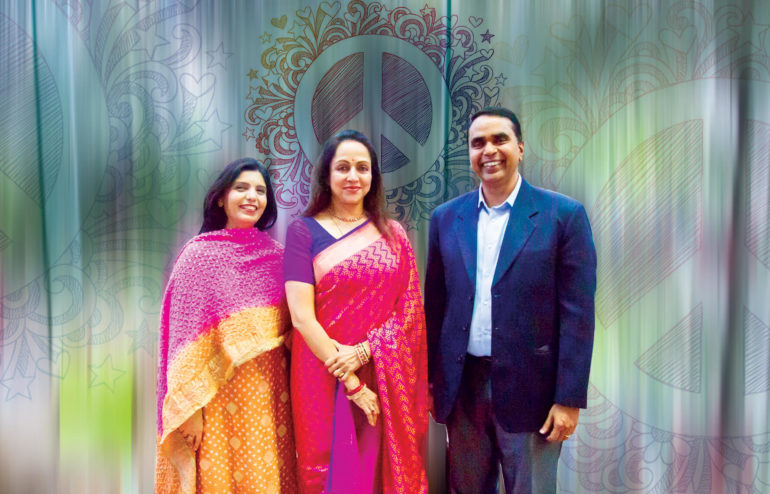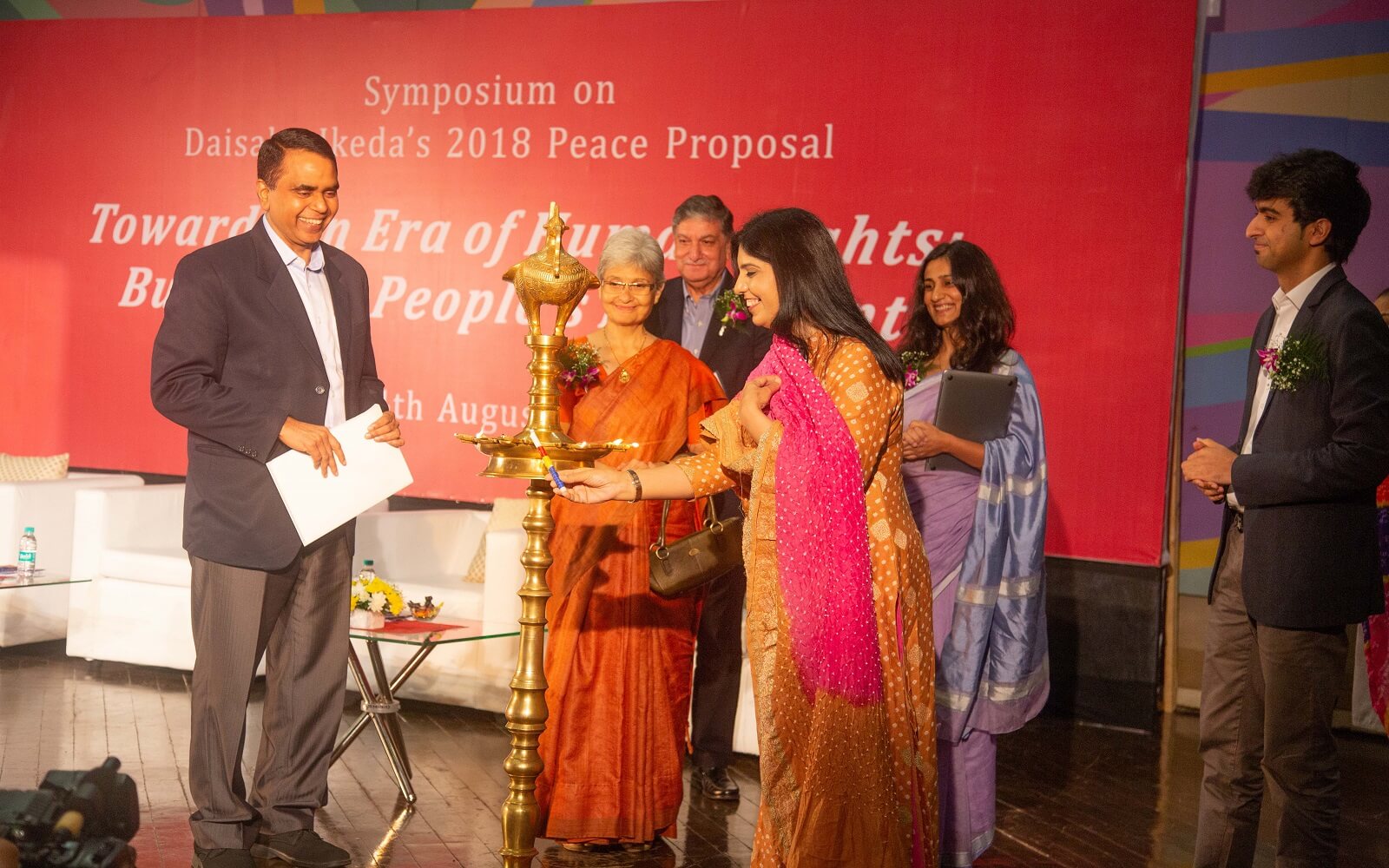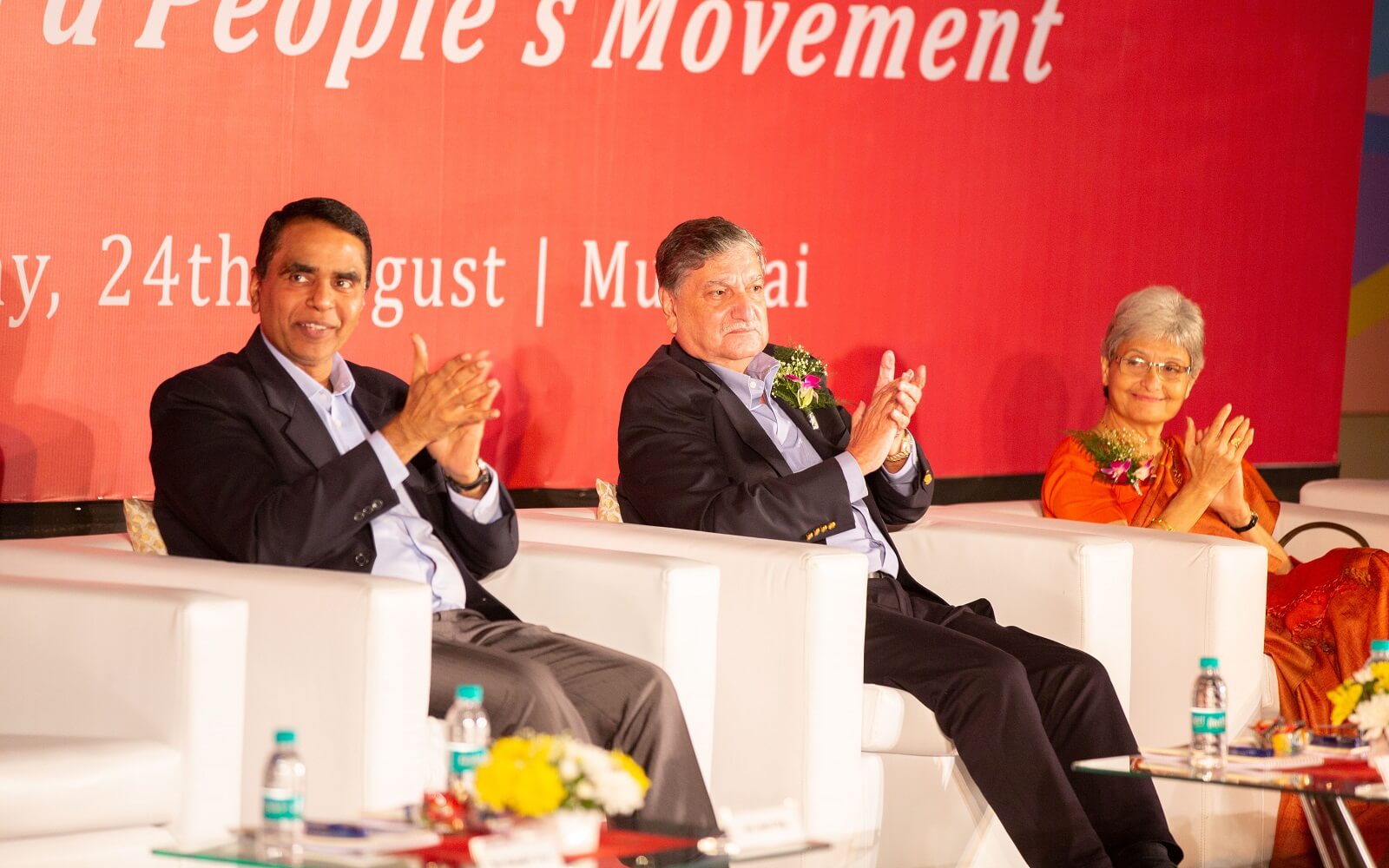The TISS Convention Centre in Mumbai was packed to the rafters with people who had come to attend a symposium inspired by SGI President Daisaku Ikeda’s 2018 Peace Proposal. An event with a difference, it aimed at steering the world away from conflict, and working towards building a humanistic society.The symposium had dignitaries speaking on Towards an Era of Human Rights: Building a People’s Movement, which was organized by Bharat Soka Gakkai (BSG) along with the Tata Institute of Social Sciences (TISS).
Held at the TISS Convention Centre, in its new campus, the main points of the proposal were highlighted and discussed by eminent speakers: Rishabh Shah, Founder and President, Indian International Model United Nations, Aarti Wig, Co-Founder and Director, Yunus Social Business India and Roshan Dalvi, Retired Judge, Bombay High Court. The keynote address was given by Ishaat Hussain, Former Executive Director, Tata Sons.
Dignitaries Speak
Ishaat Hussain, Former Executive Director, Tata Sons: “There is no doubt that every human being has the right to live with dignity. While Daisaku Ikeda asserts this based on Buddhism, it is in fact, a universal principle, common to all faiths. It is this premise that has enabled mankind to prosper over the millennia. I am fascinated by the spectrum of issues to which President Ikeda applies this principle – issues that ranging from the sustainable development goals to climate change and the refugee crisis. Further, I have no doubt that these vast problems will yield only to people’s’ movements. After decades of industrial management, including in some of the least developed parts of India, I am personally committed to improved livelihood opportunities.”
AartiWig, Co-Founder and Director, Yunus Social Business India: “The peace proposal outlines a powerful vision and provides pragmatic steps to create a civilization based on the finest human values. In true Indian tradition, it is my strong belief that all beautiful philosophies have at their core, the same message. The message of the SGI Peace Proposal resonates strongly with my own work at the Yunus Social Business, where, inspired by Prof Muhammad Yunus, our mission is to embed the world’s economic engine ― business ― with the power of selflessness.”
Rishabh Shah,Founder and President, Indian International Model United Nations: “It is not the fact that you reached the top of the mountain that matters, but how you reach the top that matters. In my opinion, the Peace Proposal 2018 shows not just a way to achieve world peace, but also maintain it.”
Justice Roshan Dalvi, Retired Judge, Bombay High Court: ‘If you want Peace, work for Justice’ ― this simple axiom that she read in a church in Halifax, Canada, when she worked in the Commonwealth Judicial Education Institute, has remained in her mind ever since. She perceives the same message as the crux of the Peace Proposal.
Vishesh Gupta, Chairperson Bharat Soka Gakkai: “When anyone sees others suffering, we should empathize and take compassionate action to encourage them out of a wish that they become happy. Broadening the understanding and support for this way of thinking and living is the key to building a solid grassroots movement for peace that can unite people around the world”.
Interestingly, and rather compassionately, in his proposal, President Ikeda cites how a UNICEF report titled “A child is a child” emphasizes that the rights and dignity of a child must be equally protected, regardless of whether they are refugees or minorities.
While technology and infrastructure have helped connectivity between people across geographical boundaries, Ikeda says a growing sense of isolationism and divide in human society can be bridged only by nurturing a different culture wherein communities and people joyously celebrate each other’s progress.
Toward building such an inclusive society, he has urged giving prime importance to women’s empowerment as that will not only be key to achieving all the sustainable development goals, but also imperative for peaceful resolution of conflicts or improving resilience in disaster preparations.“Women’s empowerment cannot be an optional agenda: It is an urgent priority for many people in dire situations,” says Ikeda. He has also urged fostering an environment to go beyond protecting the rights of the elderly and to be looked upon as an ‘irreplaceable source of spiritual support.’
According to him, only with such a humanistic approach will the world be able to shun horrors like nuclear weapons and focus on sustainable development goals aimed at everyone’s welfare.












